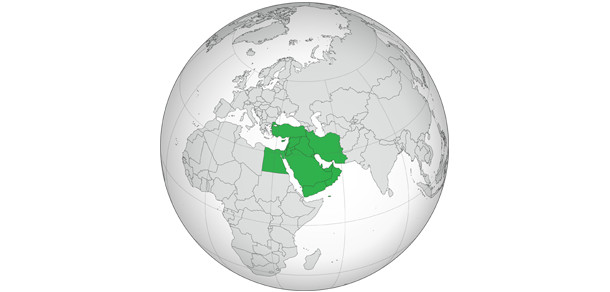re:ID National eID Series: Middle East packs a punch despite small issuance
25 January, 2016
category: Biometrics, Digital ID, Government, Smart Cards
Over the course of the year, re:ID has looked at the state of national eID credentials, breaking down the global market into key regions. The final installment of the series focuses on the Middle East, a region that in 2016 expects to see a significant boom in the number of issued eIDs.
Acuity Market Intelligence’s “Global National eID Industry Report,” suggests that the Middle East is set to see its most significant issuance volume next year, peaking at 40.2 million credentials issued. While these figures don’t quite reach the issuance heights of Asia or Africa, the Middle East does boast some advanced projects.
The region also saw some of the early adopters of the credentials. “As with Europe, the Middle East boasts numerous multi-application national eID programs that rely on advanced card technologies and include qualified electronic signatures,” says Maxine Most, founder and principal of Acuity Market Intelligence.
Looking at the bigger picture, the Middle East’s eID volume share peaks in 2016 when the region accounts for 5.9% of global eID credentials issued. This percentage then drops slightly as global eID issuance rises and eID projects Middle East reach maturity.
Drivers in the Middle East
As with other global regions, the drivers for eID programs in the Middle East include security, service and cost savings. Enrollment, adoption, interoperability and the rollout of e-services stand as the primary challenges to eID in the region.
“Middle East governments are currently trying to prevent fraud and criminal activities, stop terrorist activity and enhance regional security,” says Jon Trader, director of communications for M2SYS. “As result of that many of the Middle Eastern countries have already adopted biometric enabled eID systems, and many others are keeping it under consideration for the future.”
Smart national credentials are a key component in enabling citizens to access e-government services. “There is the need for strengthening national security in order to safeguard citizen information,” Trader says. “Equitable distribution of public services like health care, financial and legal services is driving the adoption of eID in the region.”
Beyond that, Trader says that political unrest and lengthy decision-making processes can also act as barriers to eID implementation in the region. Societal factors, he says, play a role as well.
“Although the benefits and application area of eID systems are similar throughout the globe, factors like religious and social values make the Middle East market different from others,” Trader says. “Due to these factors society itself sometimes acts as a barrier, for example, to take photographs or perform biometric scanning on female citizens.”
And yet, the Middle East plays home to some of the more advanced eID programs in the world. “Countries that are economically strong and have sufficient infrastructure to deploy these systems include Saudi Arabia and UAE,” says Trader.
M2SYS has worked on a number of national identity management projects throughout the region and still considers it a high-potential market, says Trader. The company has worked on the Saudi Arabian NGHA health care patient identification project, the Yemeni voter registration project and the UAE’s airport employee security project.




